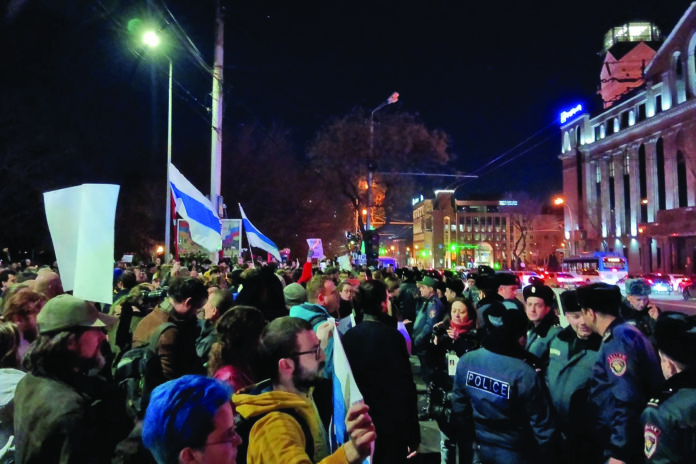By Tata Shoshiashvili and Arshaluys Barseghyan
Hundreds of protesters gathered in Armenia and Georgia following the announcement by Russian authorities that the Russian opposition leader, Alexei Navalny, had died in prison.
The Russian Penitentiary Service announced that Navalny, who survived poisoning with the Russian nerve agent Novichok before he was imprisoned in 2021, had died on Friday, February 16.
Demonstrations marked by tears and anger were organized by Russians in Tbilisi, Batumi and Yerevan on Friday evening, just hours after the news broke.
In Yerevan, protesters gathered near the Russian embassy, after police prevented them from approaching the building.
The crowds chanted Navalny’s name, anti-war and anti-Putin slogans, “Russia will be free,” and more.










